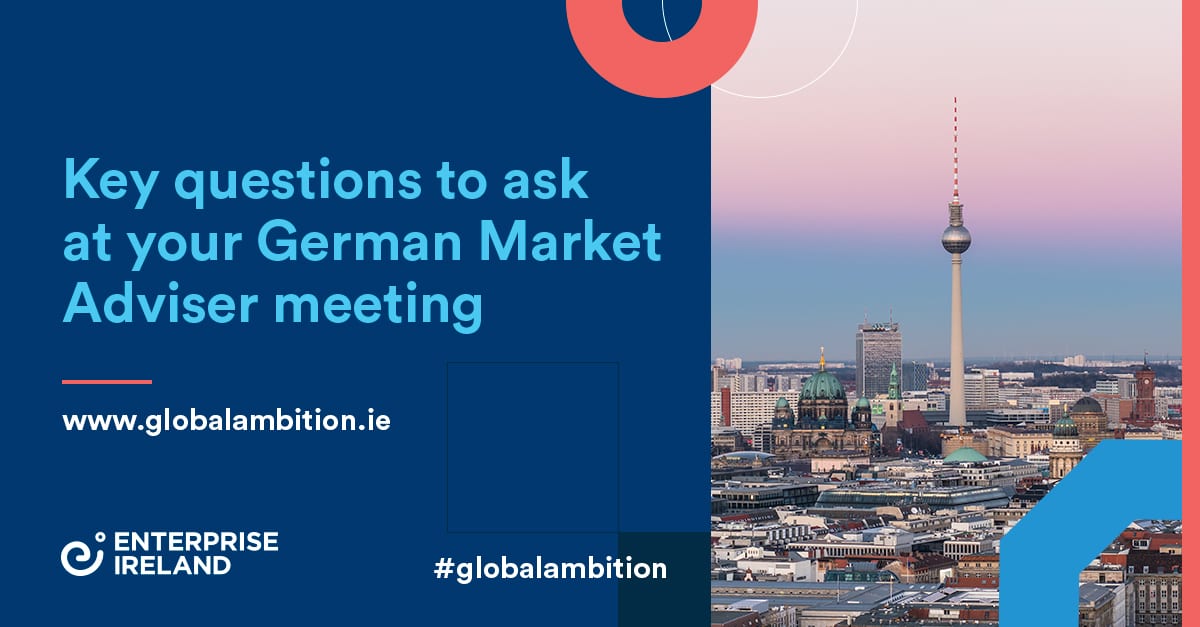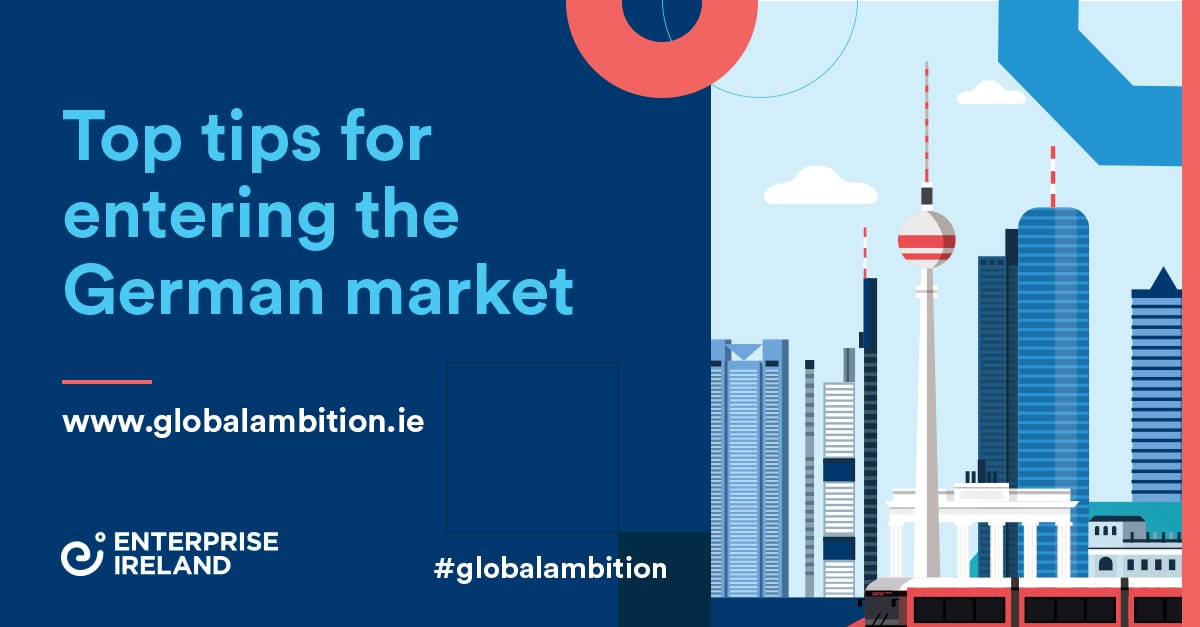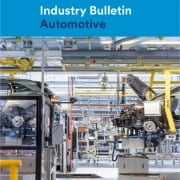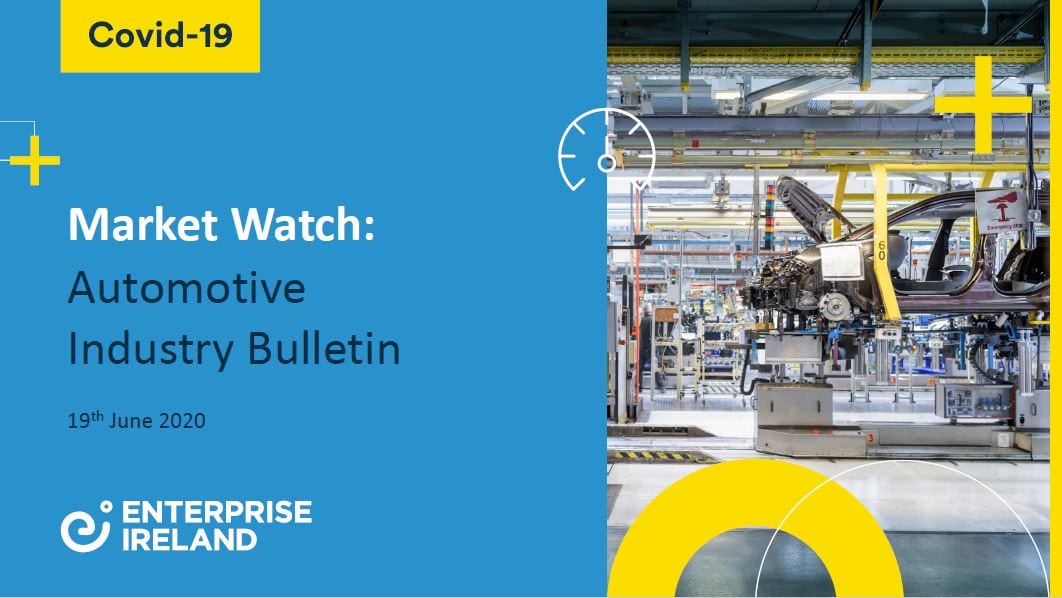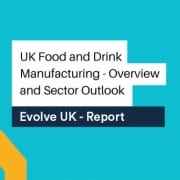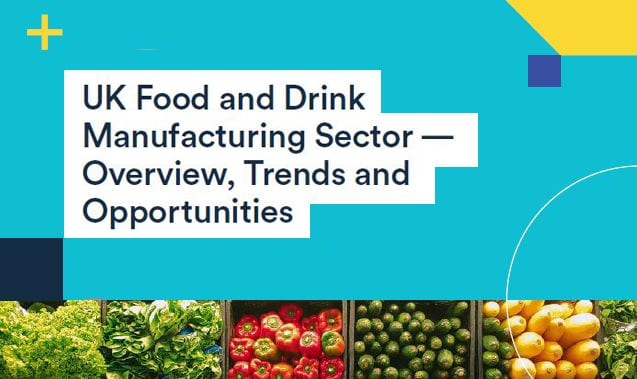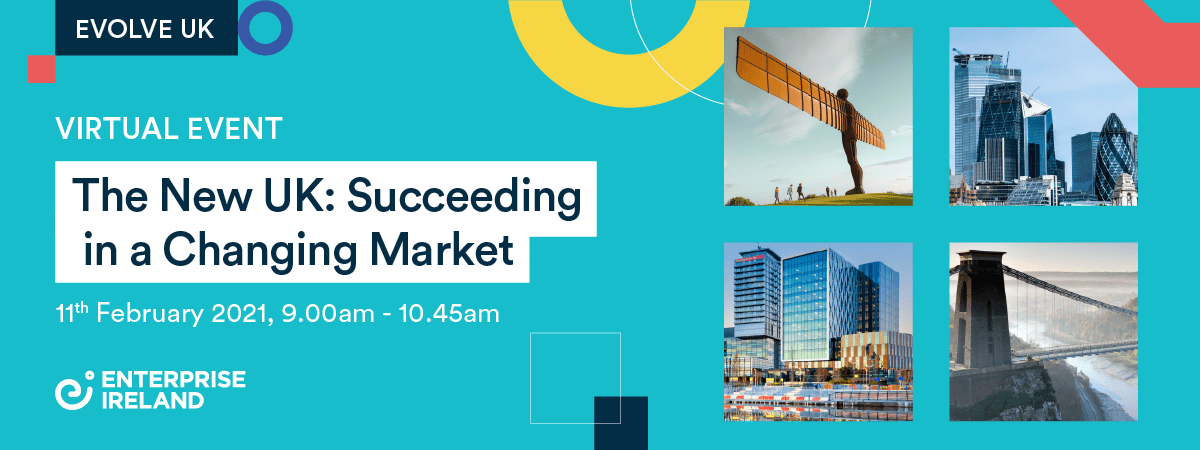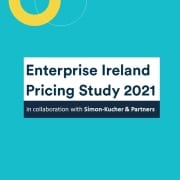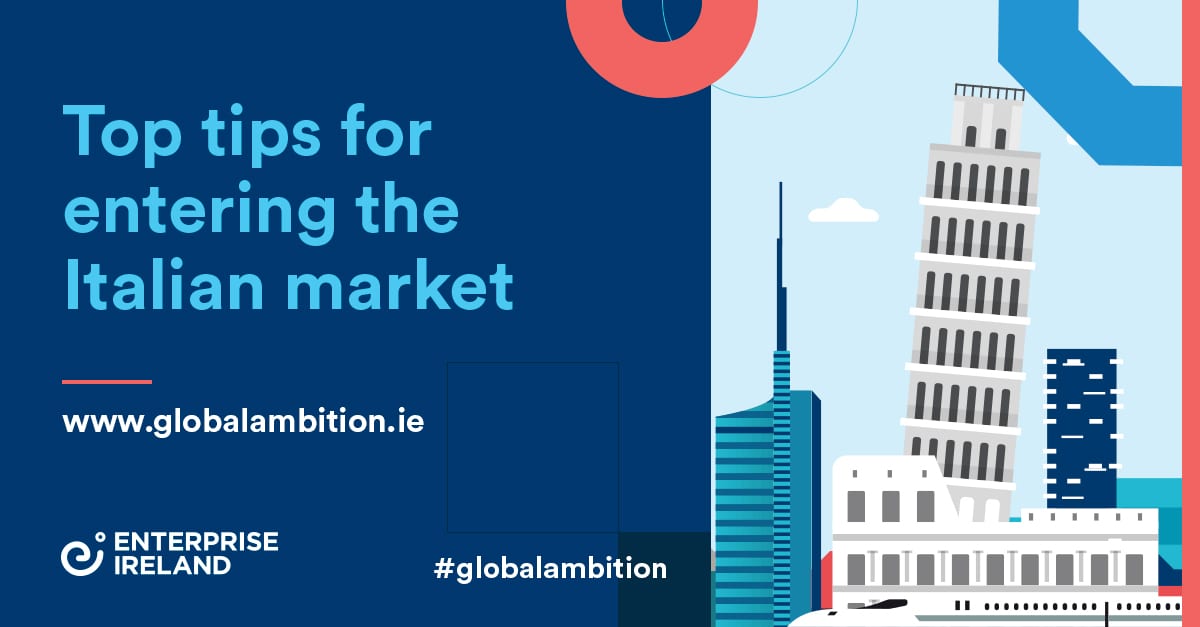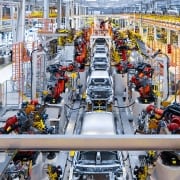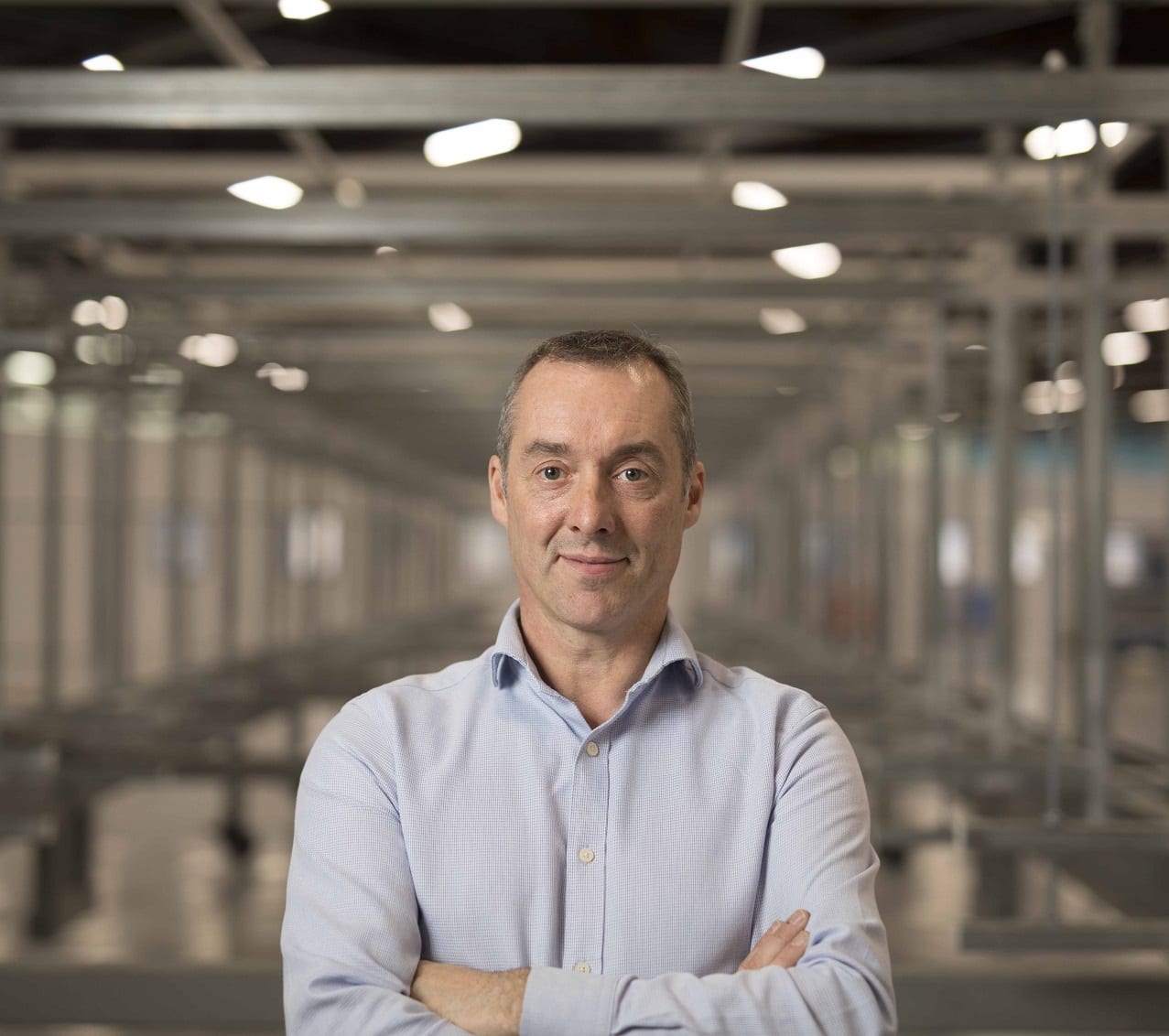
Never has there been more need for advice, guidance, reassurance and fresh ideas for Irish companies facing the unprecedented challenges that 2020 has brought, which is why the theme for Enterprise Ireland’s International Markets Week (IMW) 2020 was“Ready for a New World”.
One of the keynote speakers at this year’s IMW event was Kevin Brennan, the co-founder and managing director at Modubuild, a company that has enjoyed phenomenal growth thanks to large-scale projects throughout Northern Europe. Understandably, the company has faced project delays and postponements thanks to the effects of the Covid-19 pandemic but is still expecting strong growth this year.
“The way we look at it is that Covid has been a problem but it’s just one of the many problems that you encounter as an international business on a day-to-day or year-to-year basis,” says Kevin. “Our main message would be to remain positive, communicate with your people and continue to service your clients. We don’t see Covid as an excuse not to deliver. It may be more difficult but the world continues on.”
From small beginnings to big contracts
Modubuild was set up initially as a small company by Kevin and his business partner John Comerford to take advantage of an opportunity around modular construction, specifically in the area of specialist fire and explosion protection. Clients included Dublin Airport and Limerick Tunnel, as well as some pharmaceutical companies like Eli Lilly, Pfizer & Amgen. The company quickly became specialists in this area and were well poised to deliver solutions for the burgeoning data centre industry that experienced strong growth in the last decade.
Our first data centre job in Ireland was around 2012, and in 2015, we won our first big international contract, an €8 million contract for a data centre in the Netherlands for the same client. At the time, it was one of the biggest data centre projects in Europe. From then on, the company has skyrocketed in growth, averaging 60% year on year since then. Current year revenue will be somewhere north of €34 million, so all going well, we’d be expecting to go past the €50 million mark next year.”
Throughout their growth, Modubuild has been supported by Enterprise Ireland, both in terms of grants and advice as they expanded into new countries. “Enterprise Ireland helped us out a lot since we initially branched out into the Netherlands, leading us through issues like tax compliance and putting us in contact with local suppliers, opportunities etc. We also received two rounds of funding to help recruit people. We’ve found them really beneficial in terms of PR; our first office outside Ireland was in Amsterdam, and Enterprise Ireland arranged for Kevin Kelly, Ireland’s ambassador to the Netherlands, to open the office, which attracted a significant amount of PR. The fact that you have an entity like Enterprise Ireland promoting us as an international company alongside some other very successful companies can only be beneficial in raising our profile.”
Today, the company is headquartered in Kilkenny City, with a manufacturing plant in Castlecomer and offices in Amsterdam, Brussels, Manchester, Stockholm and Helsinki. “Our business is mostly in North Europe, following our clients as they require our services. Lots of data centre activity is located in Northern Europe – our clients tend to roll out different projects across Europe and ask us to come on the journey with them. We’re in the process of setting up in Spain in the next year because data centre activity is increasing there and we are also looking at opportunities in other countries.”
The plant in Castlecomer is another side to the business. “In Castlecomer, we design and manufacture high-tech modular buildings and can then ship them throughout the world. For example, we’ve just delivered a large turn-key design and build vaccine laboratory for a Global BioPharma customer. We designed, built and tested the entire facility in our factory, while the client was getting planning and preparing the site. We then shipped it to site in large modules and re-assembled the building on site in 10 days, this means our client can have a lifesaving vaccine ready for market around one year earlier than it would normally take.”
Tackling 2020’s challenges
Modubuild was in a strong position coming into 2020, which helped the company navigate the two major challenges of 2020 – Brexit and Covid. Brexit, explains Kevin, was something they had prepared for well in advance. “One of the things we did when Brexit first came on the scene was to set up a separate company that operated within the UK. We also took the foot off the pedal somewhat in the UK as it’s a very competitive market and instead focused our attentions elsewhere in Europe – and it’s been a very successful strategy for us.”
Covid, on the other hand, was a different story. “Covid was something that nobody saw coming. For us, we had seen huge growth coming into the crisis, and we were extremely busy with almost full order books. The biggest impact probably was the temporary closure of some projects, particularly in Ireland because of lockdowns, and that hit our Q2 turnover probably to the tune of 25%. But overall, we’re still projecting strong growth this year, perhaps not at the same level as before Covid, but possibly somewhere north of 30%.
“We’re lucky that the sectors we work in are all seen as essential – for instance, many of our clients are looking to develop vaccines for Covid and need rapid delivery of vaccine laboratories, which we can build in Castlecomer. Then the data centre industry is continuing its growth at pace, if anything, Covid has meant there is an even greater need for data centres due to video conferencing, remote working etc.”
Like most other companies, remote working and staying in contact with employees during lockdowns have been challenging. “A lot of our people are mobile and working in different locations so we were well used to communicating through video chat etc, but probably our biggest challenge was missing the interaction of working and collaborating in an office environment. We’ve tried to keep people connected by having regular Town Hall meetings online and doing various other activities online to keep people involved, virtual coffee meetings etc. There was huge uncertainty back in March/April, we noticed many people and businesses around us were panicking, so one of the first things we did as a company was to send a clear out a clear message to our people that we were in a strong position, peoples jobs were secure and we weren’t going to put people on reduced hours, furlough, forced holidays etc. In fact, we stated that we were going to keep recruiting – and that’s what we’ve done, we have continued to grow team significantly to ensure we were ready to take on new and larger projects.”
In addition, having boots on the ground in Europe has proved beneficial. “We had a couple of hundred people located on projects throughout Europe, and most of them made the decision to stay in those countries during the pandemic rather than travelling back to Ireland every week or two weeks as they would have done pre-Covid. This meant that all our projects stayed operational throughout the crisis, in fact, we actually started a couple of new projects in Europe right in the middle of the pandemic.”



